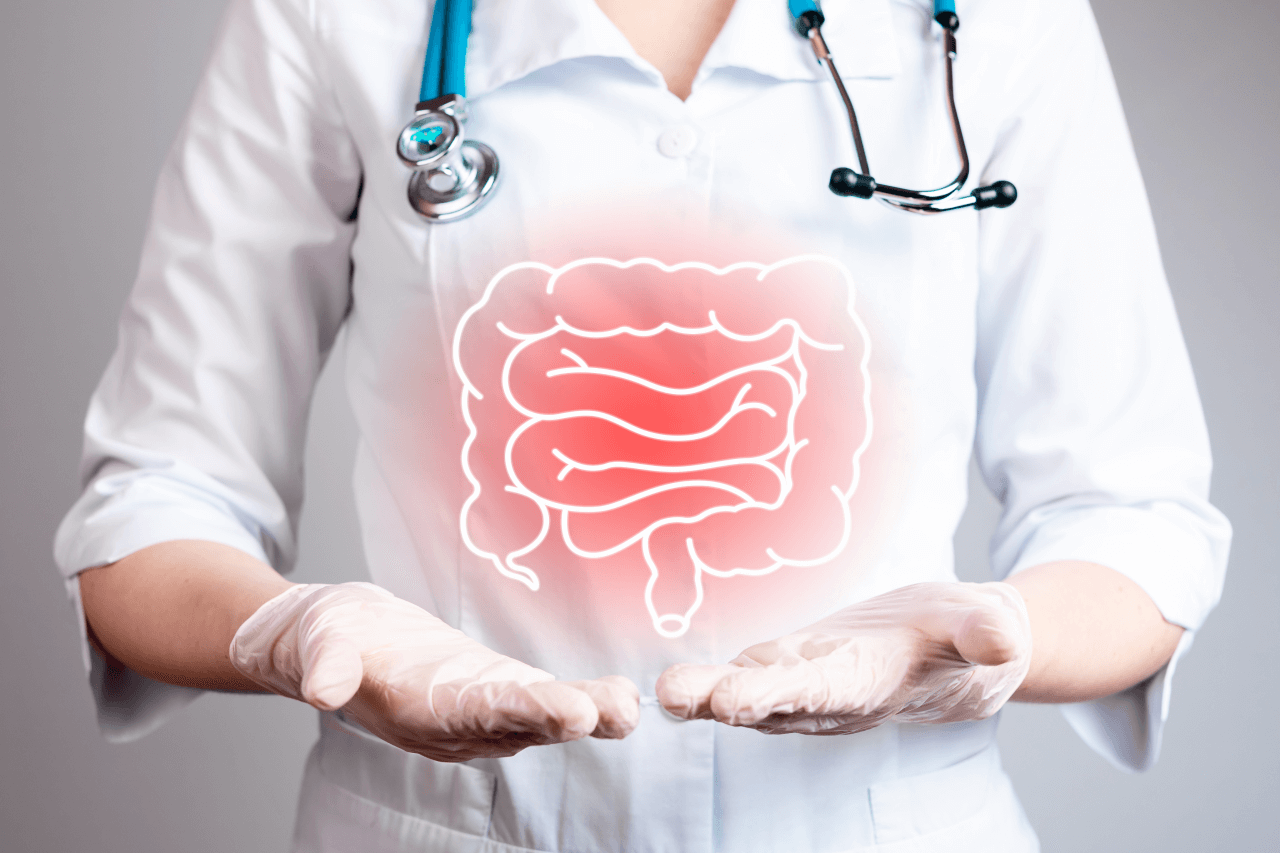Crohn’s disease is a condition that causes inflammation, or swelling, in part of your digestive system. It can affect any part of your digestive tract, but most often involves your intestine either small or large intestine.
The disease is most often found in North America and Western Europe, where it affects around 100-300 out of every 100,000 people.
In the U.S., more than half a million people have it. Researchers think cases are increasing in the U.S. and some other nations.
Crohn’s and another disease, ulcerative colitis (UC) , are part of a group of conditions called inflammatory bowel disease (IBD).
Symptoms of Crohn’s Disease
The symptoms of Crohn’s disease can vary from person to another and can range from mild to severe. Here are some of the most common symptoms:
- Abdominal pain and tenderness: This is the most common symptom of Crohn’s disease. The pain is usually located in the lower right abdomen, but it can also occur in other areas of the abdomen.
- Diarrhea: This is another common symptom of Crohn’s disease. The diarrhea can be watery or bloody, and it can be accompanied by cramping and gas.
- Unexplained weight loss: People with Crohn’s disease often experience weight loss, even if they are eating a healthy diet. This is because the inflammation in the digestive tract can make it difficult to absorb nutrients.
- Fatigue: Fatigue is a common symptom of many chronic diseases, including Crohn’s disease. It is caused by the inflammation and the body’s efforts to fight the disease.
- Fever: Fever is not a common symptom of Crohn’s disease, but it can occur during a flare-up.
- Mouth sores: Mouth sores are another symptom that can occur in people with Crohn’s disease. They are caused by the inflammation in the digestive tract that can spread to the mouth.
- Skin rashes: Skin rashes are another symptom that can occur in people with Crohn’s disease. They are caused by the inflammation in the digestive tract that can spread to the skin.
- Joint pain: Joint pain is a less common symptom of Crohn’s disease, but it can occur. It is caused by the inflammation in the digestive tract that can spread to the joints.
- Eye inflammation: Eye inflammation is a less common symptom of Crohn’s disease, but it can occur. It is caused by the inflammation in the digestive tract that can spread to the eyes.
Other signs and symptoms:
People with severe Crohn’s disease may also experience symptoms outside of the intestinal tract, including:
- Inflammation of skin, eyes and joints
- Inflammation of the liver or bile ducts
- Kidney stones
- Iron deficiency (anemia)
- Delayed growth or sexual development, in children
Causes
It is unclear what specifically causes Crohn’s disease. It happens when the immune system of your body accidentally attacks and destroys healthy body tissue (autoimmune illness).
- Your genes and family history are two factors that could be involved in the development of Crohn’s disease.
- tendency of your body to overreact to common intestinal bacteria.
- Smoking: Any age can be impacted by Crohn’s disease.
- Most often, it starts in adults between the ages of 15 and 35.
Treatments for Crohn’s Disease
There is no cure for Crohn’s disease, but there are a variety of treatments available that can help manage the symptoms and improve quality of life.
- Medication: There are a variety of medications available to treat Crohn’s disease, including corticosteroids, immunosuppressants, and biologics. Corticosteroids are used to reduce inflammation, while immunosuppressants and biologics are used to suppress the immune system.
- Surgery: Surgery may be necessary to remove diseased tissue or to create a new opening for waste elimination. Surgery is usually only used as a last resort, when other treatments have not been effective.
- Lifestyle changes: Making lifestyle changes, such as eating a healthy diet, getting regular exercise, and managing stress, can help to manage the symptoms of Crohn’s disease.
- Avoid stress as you may feel worried, embarrassed, or even sad and depressed about having a disease. Or dealing with stressful events in your life, such as moving, a job loss, or the loss of a loved one can worsen digestive problems.
Conclusion
Crohn’s disease is a chronic condition that can be challenging to manage. However, with the right treatment plan, people with Crohn’s disease can live long and healthy lives.
You can read more blogs on our website Here
FAQs
How does nature help with pain relief?
Nature can help to reduce stress, improve mood, increase relaxation, mindfulness, and exposure to natural sunlight. These factors can all contribute to pain relief.
What are some specific ways to connect with nature for pain relief?
Exercise in nature, aromatherapy, hot and cold therapy, and mindfulness and meditation are all specific ways to connect with nature for pain relief.
Is it safe to use natural remedies for pain relief?
Natural remedies are generally safe to use, but it is always best to talk to your doctor before trying any new treatment.
How long does it take to see results from using natural remedies for pain relief?
The amount of time it takes to see results from using natural remedies for pain relief varies from person to person. Some people may see results within a few weeks, while others may need to be patient and consistent with their efforts for several months.
What if I am still in pain after using natural remedies?
If you are still in pain after using natural remedies, it is important to see a doctor. There may be an underlying medical condition that needs to be addressed.
What are some other ways to manage pain?
In addition to using natural remedies, there are other ways to manage pain, such as medication, physical therapy, and changing your lifestyle. It is important to find a combination of treatments that works best for you.





